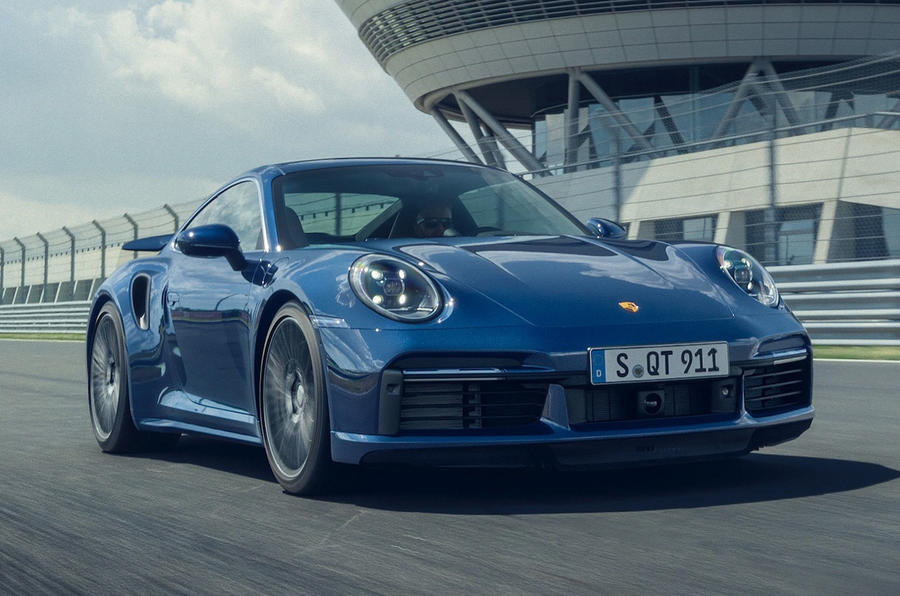Porsche has revealed the new Porsche 911 Turbo in Coupé and Cabriolet forms, following the launch of the top-rung Turbo S version earlier this year.
The new addition to the range fills the gap between the 444bhp Porsche 911 Carrera 4S and 641bhp Turbo S, packing 572bhp and 553lb ft from its twin-turbocharged 3.7-litre flat-six - 39bhp and 37lb ft more than the 991.2-generation 911 Turbo - which can get it from 0-62mph in 2.8sec and up to a top speed of 199mph.
The 911 Turbo is capable of achieving 22.6-23.5mpg on the WLTP cycle, while emitting between 271 and 284g/km of CO2.
Power is sent to all four wheels through an eight-speed PDK automatic gearbox, as found in the higher-powered car, while Porsche’s Traction Management active four-wheel drive system can send more torque to the front axle than in the previous generation.
The 911 Turbo features variable-geometry turbochargers that use electronically controlled valves to adjust boost levels to suit engine speed and load. The symmetrically mounted turbochargers’ compressor and turbine wheels spin in opposite directors, which, alongside a redesigned charge air cooling system and new piezo fuel injectors, let the engine rev more freely and improve throttle response.
The new addition to the range resembles its more powerful sibling with sizeable air intakes in its widened rear arches and a prominent variable rear spoiler, but it's set apart by its four square exhaust tips, as opposed to the twin tailpipes featured on the 911 Turbo S.
The front end features electronically controlled cooling flaps and a larger front spoiler than the standard 911 Carrera.

Additional hardware changes over the previous 911 Turbo include a 42mm-wider track at the front and a 10mm-wider track at the rear for enhanced steering precision and 28mm-larger front brake discs for improved stopping performance.






























Join the debate
Add your comment
World class engineering
We must be nearing the physical limits of attainable performance surely.
911 Turbo.
. No mate, in America there are 911's running with 1200, 1500 BHP, admittedly I don't know if there day to day cars, but, engine block must be able to stand the extra power created?
Typo
100 percent car. The 911 Turbo..